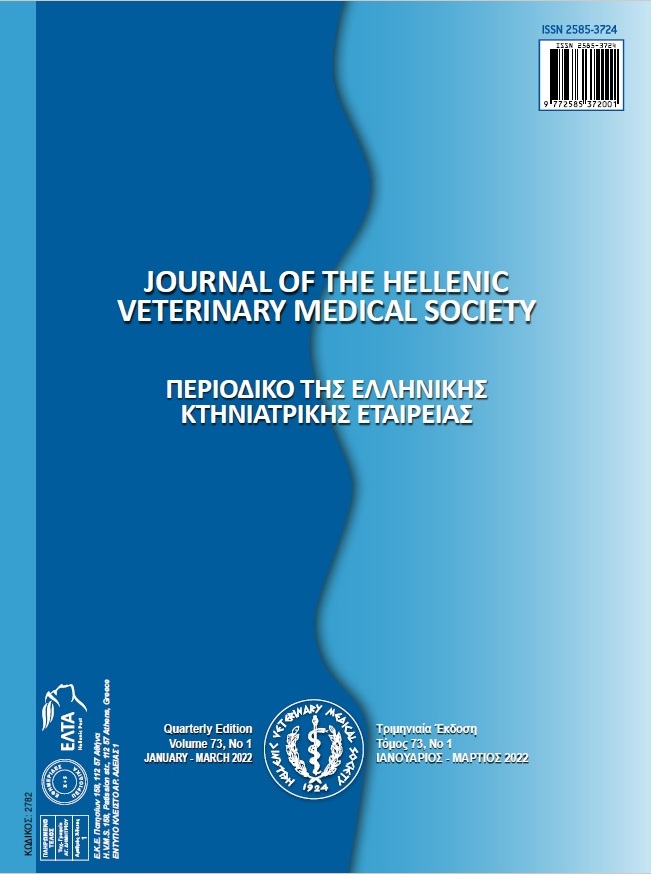Effect of the locational relationship between the 1st wave dominant follicle and the corpus luteum on conception rate after embryo transfer: data analysis of 297 embryo transfers from a commercial embryo production program

Abstract
The ovarian structures identified at the time of ET are important for the selection of recipients. In previous report, the first-wave dominant follicle, located ipsilateral to the corpus luteum on the ovary, was associated with reduced conception rate after artificial insemination. Thus, a similar locational relationship may affect conception rate during embryo transfer. Data from 297 transfers of fresh embryos to virgin heifers were analyzed aiming to check the effect of first-wave dominant follicle location in relation to the corpus luteum on conception rate using a multivariable logistic regression model with six confounders. The location of the first-wave dominant follicle in relation to the corpus luteum location had no significant effect on conception rate, suggesting that it is not necessary to consider the firstwave dominant follicle size and location in the ovaries for recipient selection.
Article Details
- How to Cite
-
Goto, A., Hayama, K., Urakawa, M., Oono, Y., Hazano, K., kayano, M., Haneda, S., Nakada, K., & Matsui, M. (2022). Effect of the locational relationship between the 1st wave dominant follicle and the corpus luteum on conception rate after embryo transfer: data analysis of 297 embryo transfers from a commercial embryo production program. Journal of the Hellenic Veterinary Medical Society, 73(1), 3635–3640. https://doi.org/10.12681/jhvms.25366
- Issue
- Vol. 73 No. 1 (2022)
- Section
- Review Articles

This work is licensed under a Creative Commons Attribution-NonCommercial 4.0 International License.
Authors who publish with this journal agree to the following terms:
· Authors retain copyright and grant the journal right of first publication with the work simultaneously licensed under a Creative Commons Attribution Non-Commercial License that allows others to share the work with an acknowledgement of the work's authorship and initial publication in this journal.
· Authors are able to enter into separate, additional contractual arrangements for the non-exclusive distribution of the journal's published version of the work (e.g. post it to an institutional repository or publish it in a book), with an acknowledgement of its initial publication in this journal.
· Authors are permitted and encouraged to post their work online (preferably in institutional repositories or on their website) prior to and during the submission process, as it can lead to productive exchanges, as well as earlier and greater citation of published work.


